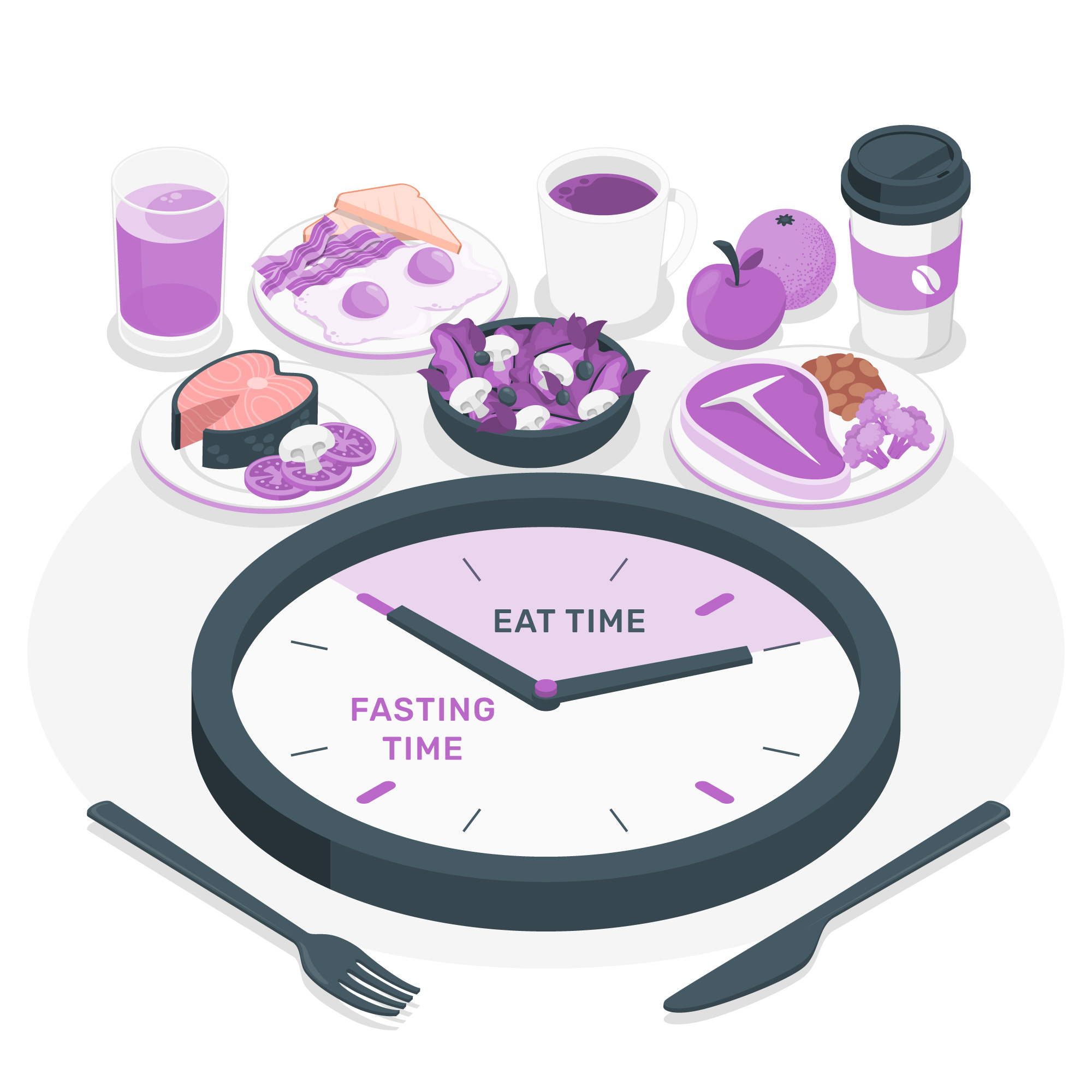What Women Over 40 Should Eat and When: Managing Menopause and Weight Loss

Understanding Menopause and Its Impact on Metabolism
As women reach their 40s and beyond, their diet needs to adapt to changes in metabolism, hormones, and daily habits. Understanding the right foods and timing can help manage weight and menopause symptoms. This guide is tailored for women over 40. The question is, what is the best diet for menopause? Well, there is no straight answer, but let’s explore this in more detail.
Menopause typically occurs in women over 40 and is marked by the absence of menstruation for a year, leading to changes in hormone production. During this stage of life, the production of female hormones such as oestrogen and progesterone decreases. For instance, lower oestrogen levels can lead to changes in appetite. This hormone can impact the central nervous system, leading to increased food intake and a decrease in basal metabolism, which is the energy the body uses at rest. In addition to weight gain, conditions such as increased fat around the organs (visceral fat), higher cholesterol levels, diabetes, osteoporosis, and a reduction in muscle mass can also occur.
Given the slowing of metabolism during this phase, it is essential to prioritise nutritional guidance to establish appropriate and individualised strategies to achieve weight loss and improve the mentioned metabolic conditions. By adjusting a diet plan and combining it with lifestyle changes, it is possible to reduce the risk of developing these conditions and focus on maintaining overall health.
What Women Over 40 Should Eat: Menopause diet
To minimise the effects of menopause and prevent weight gain, an individualised, healthy diet with balanced food combinations can be beneficial. The following recommendations on foods to include in your routine are as follows:
Prioritise Lean Proteins: Adequate protein intake is important for maintaining muscle mass and can have a satiating effect, positively influencing metabolism. It is advisable to include sources of protein in a balanced diet.
Incorporate Healthy Fats into Your Daily Diet: Healthy fats play an important role in a balanced diet and can contribute to overall health, including mental health and hormonal function. Some good sources of healthy fats are avocados, nuts, chia seeds, and olive oil, among others. However, it is always advisable to seek the help of a healthcare professional to tailor the quantities of all nutrients in your diet.
Increase Fibre Intake: Vitamins and minerals in fruits, vegetables, grains, and legumes offer antioxidant and anti-inflammatory properties, as well as help regulate bowel movements, promoting the health of beneficial gut bacteria. Consuming legumes provides more isoflavonoid nutrients for gut bacteria. Isoflavonoids are compounds found in soy and act similarly to oestrogen, so increasing fibre intake, especially from whole grains and legumes, can be a useful strategy for overall well-being during menopause. Some studies suggest that foods rich in isoflavonoids may support hormonal balance, but it is important to seek professional guidance for individualised strategies. Additionally, fibres help control appetite by slowing down gastric emptying and contribute to lowering cholesterol levels, improving the lipid profile.
Choose Quality Carbohydrates: Complex carbohydrates with a low glycaemic index can provide adequate energy and help maintain stable blood sugar levels. Including whole grains such as quinoa, rice, and root vegetables like potatoes can be beneficial for weight loss during menopause.
Include Calcium and Vitamin D-rich foods: These foods are essential for bone health, immunity, and muscle maintenance, especially as the risk of bone fragility (osteoporosis) and muscle loss (sarcopenia) increases with menopause. Dairy products, seafood, and green vegetables should be included in the diet, along with vitamin D supplementation to ensure adequate levels of calcium and vitamin D. Additionally, it is important to consider possible allergies and food intolerances to ensure all nutrients are well absorbed.
Stay Hydrated: Adequate daily water intake is essential for regulating metabolism. Water helps detoxify the body, maintain proper bowel function, aid in satiety, and assist with weight loss. It can also be a strategy to minimise symptoms such as hot flashes and mood swings that occur during menopause, by helping balance body temperature and providing energy to brain cells.

When Women Over 40 Should Eat: Meal Timing and Metabolic Health
Setting regular meal times is a key strategy for managing menopause symptoms and improving body composition. Recent studies indicate that this routine can increase satiety, keep metabolism active, and assist with weight loss. The timing of meals can affect different organs and stimulate either the mobilisation or accumulation of body fat. The hormones that regulate hunger and appetite follow circadian rhythms, with periods of greater and lesser activation, just like waking and sleeping hours. When meals are eaten later than ideal, the effectiveness of these hormones may be compromised, disrupting metabolism and making it harder for the body to use the energy from food properly, which can lead to the accumulation of body fat.
Keeping regular meal times can help establish a healthy eating routine. While this practice can be beneficial for digestive health and overall well-being, the effects on metabolism and weight vary from person to person. It is recommended to follow personalised nutritional guidance for menopause diet to ensure that the hormones regulating appetite work effectively.
It is ideal to start the day with a protein-rich breakfast, as protein sources early on can influence food choices throughout the day, helping to regulate blood sugar levels. Additionally, proteins help maintain satiety and energy during the day. Healthy snacks, such as nuts, seeds, berries, and yoghurt, can help keep metabolism active and prevent hunger spikes until dinner. In the evening, it is important to have dinner at least two hours before bed to aid digestion and maintain sleep quality.
Sleep disturbances are also reported during menopause, so it is important to adjust the circadian rhythm to improve sleep quality. Sleep deprivation can affect food intake during the day, just as the quality and timing of meals can interfere with sleep. These two processes are interconnected, and when disrupted, can lead to fatigue, weight gain, and worsening of menopause symptoms. Therefore, it is important to regulate meal times and sleep hours to positively impact the body’s functioning.
The Role of Intermittent Fasting in Menopause
Another aspect that seems to influence weight loss during menopause is intermittent fasting. This nutritional strategy, combined with menopause diet and lifestyle changes, can improve a woman’s mental and reproductive health, as well as reduce body inflammation. Some people report psychological benefits from adopting intermittent fasting, such as a sense of mental clarity.

As women enter their 40s and face menopause, it is essential to understand their bodies and pay attention to their needs. Hormonal changes can affect metabolism and how the body responds to diet and exercise. Therefore, it is important to adjust diet and lifestyle based on physical and emotional sensations. Additionally, seeking professional guidance from a nutritionist can help personalise weight loss and menopause strategies and ensure that the chosen plan is healthy and effective, respecting the particularities of each woman in this stage of life. The best menopause diet is the one that fits in your routine, and adapts to your body and mind. Every woman is different.
If you are over 40 and you are struggling to lose weight or already facing menopause symptoms, consider reaching for help from one of our London nutritionists who can assist you in this journey to achieve optimal health, lose weight and manage symptoms.
Get an action plan with a Free Assessment!
Get personalized insights to enhance your well-being and achieve your goals. In this 15-minute video call, we will listen to you and guide you on what you need to do.
Schedule Your Free AssessmentRecent blogs







